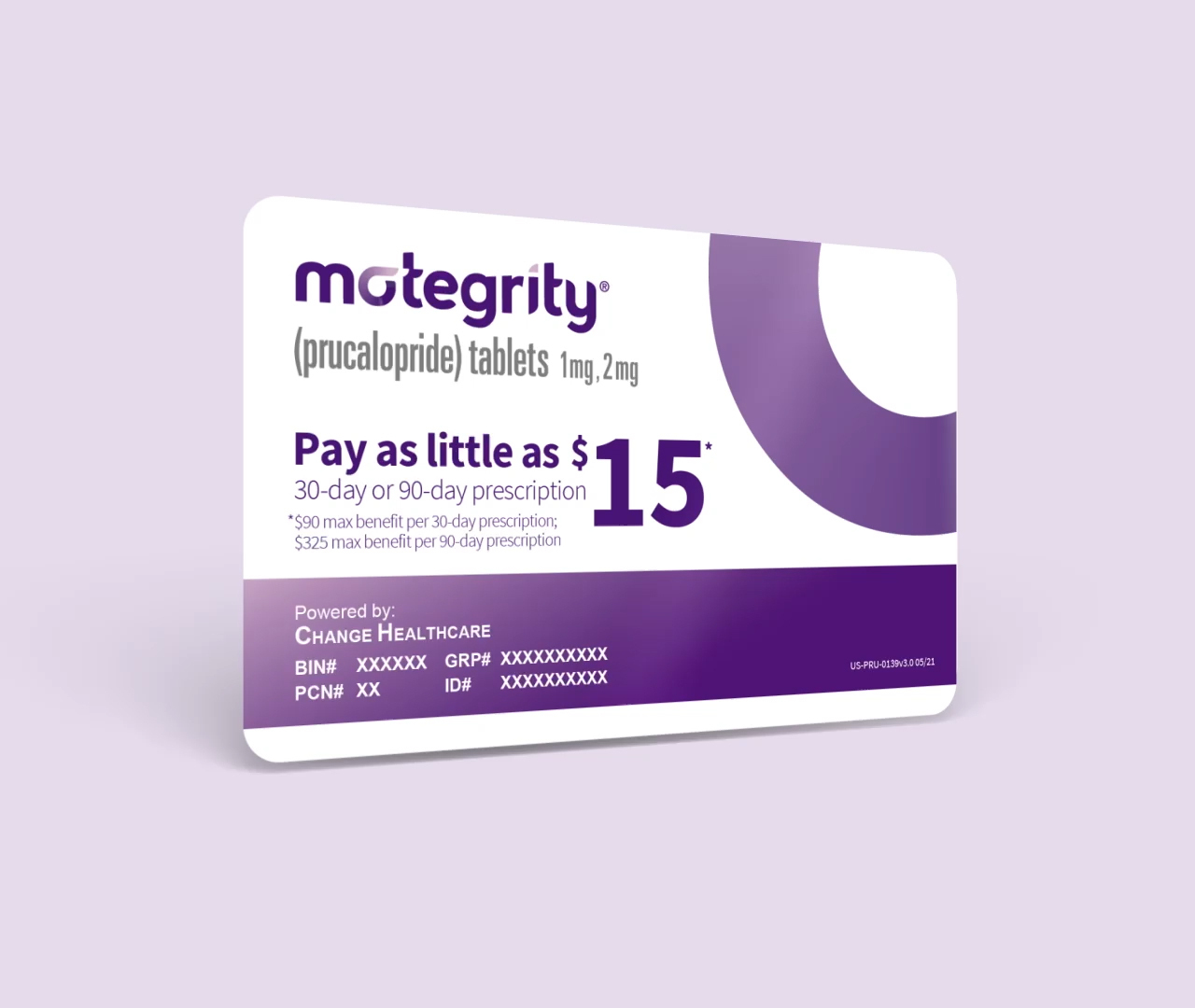

Finance
Why Is Motegrity Not Covered By Insurance?
Published: November 15, 2023
Discover why insurance does not cover Motegrity and learn about alternative finance options available for this medication.
(Many of the links in this article redirect to a specific reviewed product. Your purchase of these products through affiliate links helps to generate commission for LiveWell, at no extra cost. Learn more)
Table of Contents
Introduction
Motegrity is a medication that is commonly prescribed for patients suffering from gastrointestinal disorders, such as chronic idiopathic constipation (CIC). It works by stimulating the muscles in the digestive tract, leading to improved bowel movements and relief from symptoms like bloating and discomfort. However, despite its effectiveness, many patients are left wondering why Motegrity is not covered by insurance.
Understanding the reasons behind insurance coverage limitations for Motegrity requires an examination of various factors. In this article, we will explore the importance of Motegrity for patients, the high cost of the medication, and the formulary restrictions and prior authorization requirements imposed by insurance companies. Additionally, we will discuss alternative treatments available for gastrointestinal disorders.
Motegrity is known for its ability to restore normal bowel function and improve overall quality of life for those suffering from CIC. It has been proven to effectively relieve symptoms, such as difficulty passing stools and infrequent bowel movements. The medication is particularly beneficial for patients who have not found relief with other treatment options. However, despite its efficacy, insurance coverage for Motegrity remains limited.
The high cost of Motegrity is one of the primary reasons why insurance companies may be hesitant to cover it. The medication is typically taken on a long-term basis, which can become financially burdensome for patients without insurance coverage. The high price tag of Motegrity may be attributed to factors such as research and development costs, manufacturing expenses, and marketing efforts. As a result, patients are often left to bear the brunt of these costs, making it difficult for many to access the medication they need.
Insurance companies also impose formulary restrictions, which further complicate access to Motegrity. Formularies are lists of approved medications that insurance plans cover, and they vary between different insurers. Motegrity may not be included in the formulary of certain insurance plans, meaning that patients are required to pay out-of-pocket for the medication. Insurers typically include medications in their formularies based on factors such as cost-effectiveness, availability of alternative treatments, and clinical guidelines.
Another barrier to insurance coverage for Motegrity is the requirement for prior authorization. Prior authorization is the process by which insurance companies review and approve the use of certain medications before they are covered. This process involves submitting documentation from healthcare providers outlining the patient’s medical history, failed prior treatments, and the need for the prescribed medication. The prior authorization process can be time-consuming and may result in delayed or denied coverage for Motegrity, leaving patients grappling with the financial burden of the medication.
What is Motegrity?
Motegrity, also known by its generic name prucalopride, is a medication used to treat gastrointestinal disorders, specifically chronic idiopathic constipation (CIC). It belongs to a class of drugs known as selective serotonin agonists, which work by enhancing the contractions of the muscles in the digestive tract, resulting in improved bowel movements.
Chronic idiopathic constipation is a common condition characterized by infrequent bowel movements and difficulty passing stools. It can cause discomfort, bloating, and a decreased quality of life for those who suffer from it. Motegrity targets the underlying cause of CIC by increasing the movements of the intestines, allowing for more regular bowel movements.
Motegrity is available in the form of tablets and is typically taken once daily. It is important to follow the prescribed dosage and instructions provided by a healthcare professional. The medication works by stimulating the serotonin receptors in the gastrointestinal tract, which leads to increased muscle contractions. As a result, bowel movements become more frequent and easier to pass.
The effectiveness of Motegrity has been demonstrated in clinical studies. Research has shown that patients who used Motegrity experienced an increase in the number of complete spontaneous bowel movements per week compared to those who received a placebo. The medication has also been found to improve stool consistency and relieve symptoms such as abdominal pain and bloating.
It is important to note that Motegrity is not a laxative and should not be used for occasional constipation. It is specifically indicated for patients with chronic idiopathic constipation, where other treatment options have not provided sufficient relief. Motegrity treats the underlying cause of constipation by stimulating the muscles in the digestive tract, rather than simply facilitating bowel movements.
Before starting Motegrity, it is crucial to inform your healthcare provider about any other medical conditions, medications, or allergies you may have. They will assess your individual situation and determine if Motegrity is the right treatment option for you. Additionally, it is important to discuss potential side effects and any concerns with your healthcare provider.
Importance of Motegrity for patients
Motegrity plays a crucial role in improving the quality of life for patients dealing with chronic idiopathic constipation (CIC) and other gastrointestinal disorders. The medication helps address the underlying issue of impaired intestinal motility, providing relief from symptoms and restoring normal bowel function.
One of the key benefits of Motegrity is its ability to increase bowel movements and promote regularity. For individuals with CIC, frequent and complete spontaneous bowel movements are essential for alleviating discomfort and avoiding complications such as fecal impaction. Motegrity stimulates the muscles in the digestive tract, promoting the movement of stool through the intestinal system, and leading to more consistent and easier bowel movements.
In addition to promoting regularity, Motegrity has been shown to improve stool consistency. This can be particularly beneficial for patients who struggle with hard or lumpy stools, as it makes passing stools less challenging and reduces the associated discomfort. By enhancing stool consistency, Motegrity helps normalize the texture of bowel movements, leading to a more comfortable and efficient digestive process.
Motegrity also provides relief from other common symptoms of gastrointestinal disorders. Patients often experience bloating, abdominal pain, and a sensation of incomplete evacuation. By enhancing intestinal motility, Motegrity helps alleviate these symptoms, enabling patients to feel more comfortable and less burdened by their condition. It can have a profound impact on overall well-being and quality of life.
Furthermore, Motegrity offers a valuable treatment option for patients who have been unresponsive to other forms of therapy. Traditional laxatives and dietary modifications may not always provide adequate relief for individuals with chronic idiopathic constipation. Motegrity, with its targeted mechanism of action, offers an alternative approach that can make a significant difference for those who have struggled to find effective treatment options.
It is important to highlight that the importance of Motegrity for patients is not solely limited to physical relief. Gastrointestinal disorders can have a significant impact on mental and emotional well-being. Chronic constipation can cause anxiety, frustration, and a decreased quality of life. By addressing the root cause of the problem and providing relief from symptoms, Motegrity can help patients regain control over their lives and improve their overall mental health.
Overall, Motegrity is an important medication for patients dealing with chronic idiopathic constipation and other gastrointestinal disorders. It offers a targeted approach to improve bowel movements, alleviate symptoms, and enhance quality of life. By providing both physical and emotional relief, Motegrity plays a vital role in helping patients overcome the challenges of gastrointestinal disorders and regain control over their digestive health.
Why is Motegrity not covered by insurance?
One of the biggest challenges patients face when it comes to accessing Motegrity is the limited insurance coverage for this medication. There are several reasons why insurance companies may not provide coverage for Motegrity, leaving patients to bear the burden of its cost on their own.
The primary factor that contributes to Motegrity not being covered by insurance is its high cost. Pharmaceutical companies invest significant resources into the research, development, and manufacturing of medications like Motegrity. These costs are often passed on to the consumers, resulting in a higher price tag for the medication. Insurance companies, in an effort to control expenses and maintain profitability, may choose not to include Motegrity in their coverage plans due to its high pricing.
Another reason for the limited insurance coverage for Motegrity is the lack of availability of generic alternatives. Generic versions of medications are typically more affordable and have lower copayments for patients. However, since Motegrity is still under patent protection, there are no generic options available. This lack of competition in the market can also contribute to insurers not including Motegrity in their coverage plans.
Insurance companies also introduce formulary restrictions to manage costs and promote the use of cost-effective alternatives. Formularies are lists of approved medications that insurance plans cover. Insurers design these formularies based on factors such as clinical effectiveness, safety, and cost considerations. If Motegrity is not deemed cost-effective or there are alternative treatments available that are deemed equally effective at a lower cost, it may be excluded from the formulary, resulting in limited or no insurance coverage.
In addition to formulary restrictions, insurance companies may require prior authorization for the coverage of Motegrity. Prior authorization is a process where healthcare providers need to seek approval from the insurance company before prescribing a specific medication. The process often involves submitting documentation to justify the medical necessity of Motegrity. The prior authorization process can delay access to the medication, and if it is not approved, patients may be left to bear the full cost of Motegrity themselves.
Furthermore, insurance coverage for Motegrity may also vary based on the individual’s insurance plan. Different insurance plans may have different coverage policies and formularies, which can result in disparities in coverage for Motegrity. Patients are encouraged to review their insurance policies and discuss coverage options with their healthcare providers to better understand the extent of coverage for Motegrity under their specific plan.
Overall, the limited insurance coverage for Motegrity can be attributed to factors such as high cost, lack of availability of generic alternatives, formulary restrictions, and the requirement for prior authorization. These factors collectively contribute to the financial burden placed on patients, making it challenging for them to access and afford this vital medication for the treatment of gastrointestinal disorders.
High cost of Motegrity
One of the main reasons why Motegrity may not be covered by insurance is its high cost. The price of pharmaceutical medications, including Motegrity, can be influenced by various factors, such as research and development expenses, manufacturing costs, and marketing efforts. Unfortunately, this high price tag can pose a significant barrier for patients seeking access to this medication.
The cost of Motegrity is particularly concerning because it is typically prescribed for long-term use. Chronic idiopathic constipation (CIC), the condition for which Motegrity is commonly prescribed, is a chronic disorder that requires ongoing management and treatment. Consequently, patients may need to take Motegrity for an extended period, potentially resulting in significant financial burden without insurance coverage.
Moreover, the high cost of Motegrity is often attributed to the significant investment made by pharmaceutical companies in researching and developing new medications. This includes conducting clinical trials, ensuring safety and efficacy, and obtaining regulatory approvals. These processes involve substantial financial resources, and these costs are typically passed on to consumers through the final price of the medication.
Another factor contributing to the high cost of Motegrity is manufacturing expenses. Pharmaceutical companies must adhere to strict quality standards and regulations to ensure the production of safe and effective medications. The manufacturing process requires state-of-the-art facilities, specialized equipment, and skilled labor, all of which can drive up production costs. These costs are ultimately reflected in the price of the medication.
Additionally, the marketing efforts undertaken by pharmaceutical companies can also contribute to the high cost of Motegrity. Companies invest considerable resources in promotional activities, including direct-to-consumer advertising and marketing campaigns targeting healthcare professionals. These costs are factored into the overall pricing of the medication.
The high cost of Motegrity can be a significant burden for patients without insurance coverage. It makes access to this essential medication financially challenging, potentially impacting their ability to manage their gastrointestinal disorder effectively. Many patients find themselves having to make difficult decisions regarding their healthcare, weighing the benefits of Motegrity against the financial implications.
It is important to note that efforts are being made to address the issue of high medication costs. Advocacy groups, healthcare professionals, and lawmakers are continuously working to improve access to affordable medications for patients. This includes initiatives to promote generic alternatives, increase transparency in pricing, and explore cost-saving measures.
In the meantime, patients who are struggling with the high cost of Motegrity should consider discussing their financial concerns with their healthcare providers. Healthcare professionals may be able to provide assistance or suggest alternative treatment options that are more affordable but equally effective. Additionally, patients can also explore patient assistance programs offered by pharmaceutical companies or nonprofit organizations, which may provide financial support or discounts for medication costs.
Lack of insurance coverage for Motegrity
One of the challenges that patients face when seeking access to Motegrity is the lack of insurance coverage for this medication. Despite its effectiveness in treating gastrointestinal disorders, many insurance plans do not include Motegrity in their formularies or provide limited coverage. This can leave patients facing significant financial burden, as they are required to pay for the medication out-of-pocket.
The lack of insurance coverage for Motegrity can be attributed to several factors. One primary reason is the high cost of the medication. Motegrity is a brand-name drug, currently without a generic alternative, meaning it can be more expensive compared to other medications in the same class. Insurance companies may choose not to include Motegrity in their coverage plans due to cost concerns and the desire to control expenses.
Another factor contributing to the lack of insurance coverage is the availability of alternative treatments. Insurance plans typically evaluate the cost-effectiveness of medications and consider whether there are equally effective, lower-cost alternatives available. If there are other medications or therapies that are considered to be equally effective in managing gastrointestinal disorders like chronic idiopathic constipation (CIC), insurance companies may opt to cover those instead of Motegrity.
Formulary restrictions imposed by insurance companies also play a role in the lack of coverage for Motegrity. Formularies are lists of approved medications that insurers agree to cover. These formularies are often created based on various factors, including clinical effectiveness, safety, and cost considerations. If Motegrity is not considered cost-effective or is deemed less necessary in comparison to other medications, it may be excluded from the formulary or placed in a higher cost-sharing tier, limiting its coverage.
Furthermore, insurance plans may require prior authorization for Motegrity. This means that healthcare providers need to obtain approval from the insurance company before prescribing the medication. The prior authorization process often involves submitting documentation, such as medical history and failed previous treatments, to justify the need for Motegrity. This additional step can create delays in accessing the medication and can result in denied coverage, leaving patients responsible for the full cost.
The lack of insurance coverage for Motegrity can pose significant challenges for patients. Many individuals rely on insurance to help manage the costs of their medications, and without coverage, it becomes financially burdensome to access and afford Motegrity. Patients are often left to navigate the complexities of insurance reimbursement and may have to explore alternative treatment options or seek financial assistance from other sources.
Insurance formulary restrictions
Insurance formulary restrictions are an important aspect of insurance coverage that can significantly impact a patient’s access to medications like Motegrity. Formularies are lists of approved medications that insurance plans will cover, and they are designed to balance healthcare quality, effectiveness, and cost considerations.
Insurance companies create formularies based on various factors, including the clinical efficacy of medications, safety profiles, and cost-effectiveness. These formularies are typically categorized into different tiers or levels, with medications in each tier having different coverage levels, copayments, or coinsurance amounts.
Insurance formulary restrictions can impact coverage for Motegrity in several ways. First, Motegrity may not be included on the formulary at all, meaning that the insurance plan does not cover the cost of the medication. In this case, patients would be required to pay the full cost of Motegrity out-of-pocket, which can be a significant financial burden.
Alternatively, Motegrity may be included on the formulary, but in a higher tier or with higher copayments or coinsurance. This means that patients would need to pay a larger share of the medication cost compared to medications in lower tiers. Formulary placement is often determined by insurance companies based on factors such as the medication’s cost, availability of generic alternatives, and clinical guidelines.
Formulary restrictions can also result in step therapy requirements, which means that patients must first try less expensive or preferred medications before being allowed access to Motegrity. This process involves starting with lower-cost alternatives and only progressing to Motegrity if those alternatives are ineffective or cause adverse effects. While step therapy can help manage costs, it can also delay patients from accessing the most appropriate treatment for their condition.
The specific formulary restrictions for Motegrity can vary between insurance plans. It is crucial for patients to review their insurance coverage documents or contact their insurance provider to understand the specific coverage details for Motegrity and any associated restrictions.
If a patient’s insurance plan does not cover Motegrity or places it on a higher cost-sharing tier, there may be options available. Patients can work with their healthcare providers to explore alternatives, such as medications that are on the formulary or have a lower cost-sharing tier. Additionally, patients can communicate with their insurance provider to understand the appeals process or request an exception if they believe that Motegrity is the most appropriate treatment for their condition.
It is important for patients to be proactive in advocating for access to necessary medications. Understanding insurance formulary restrictions and exploring available options can help patients navigate the complexities of insurance coverage to ensure that they can access the medications they need, including Motegrity, without undue financial burden.
Prior authorization requirements
Prior authorization is a process that insurance companies use to manage and control the use of certain medications, including Motegrity. It involves obtaining approval from the insurance company before the medication can be covered under the patient’s insurance plan. The purpose of prior authorization is to ensure that the prescribed medication is medically necessary and appropriate for the patient’s condition.
The prior authorization process requires healthcare providers to submit specific documentation to demonstrate the need for Motegrity. This documentation typically includes information such as the patient’s medical history, previous treatments attempted, and any supporting evidence of the medication’s efficacy for the patient’s condition. It is an additional step that must be completed before the insurance company will consider providing coverage for Motegrity.
The requirement for prior authorization can lead to delays in accessing Motegrity, as the process can take time. Patients may need to wait for the insurance company’s decision before they can start or continue taking the medication. This delay can be frustrating and may impact the patient’s ability to manage their gastrointestinal disorder effectively.
Furthermore, there is a potential for prior authorization requests to be denied. Insurance companies may have specific criteria or guidelines that must be met before they approve coverage for Motegrity. If the documentation provided does not meet these criteria or if the insurance company deems the medication to be unnecessary or not cost-effective, the prior authorization request may be denied. In these cases, patients may have to either pay out-of-pocket for Motegrity or explore alternative treatment options.
Prior authorization requirements can vary between different insurance plans, and it is essential for patients to familiarize themselves with their specific plan’s requirements. It is recommended that patients work closely with their healthcare providers to ensure that all necessary documentation is submitted accurately and in a timely manner to maximize the chances of obtaining prior authorization for Motegrity.
To streamline the prior authorization process, some healthcare providers may have established protocols or resources available to assist patients in navigating this requirement. Patients can inquire with their healthcare provider’s office about any available support to help facilitate the prior authorization process for Motegrity.
Patients who encounter challenges with the prior authorization process for Motegrity should consider seeking assistance from their healthcare providers, insurance providers, or patient advocacy organizations. These resources can provide guidance, answer questions, and offer support to help patients overcome barriers in accessing the medication they need.
Overall, prior authorization requirements can add an extra layer of complexity and potential delays in accessing Motegrity. Patients should be proactive in understanding their insurance plan’s prior authorization process and work closely with their healthcare providers to navigate through the requirements and advocate for the coverage of Motegrity when it is deemed a necessary and appropriate treatment option.
Alternative treatments for gastrointestinal disorders
While Motegrity is a commonly prescribed medication for gastrointestinal disorders, there are alternative treatment options available for patients who are unable to access or afford Motegrity due to insurance limitations or other reasons. These alternative treatments aim to provide relief from symptoms and improve overall gut health.
Dietary modifications are often a key component of managing gastrointestinal disorders. Increasing fiber intake through fruits, vegetables, whole grains, and legumes can promote regular bowel movements and alleviate constipation. Adequate hydration is also crucial for maintaining digestive health. Additionally, avoiding trigger foods that may exacerbate gastrointestinal symptoms, such as spicy foods or irritants like caffeine and alcohol, can be helpful.
Over-the-counter fiber supplements, such as psyllium husk or methylcellulose, can be used to increase fiber intake if dietary adjustments alone are not sufficient. These supplements can help soften stools and promote regular bowel movements. It is important to follow the recommended dosage and consult with a healthcare provider before starting any supplement.
Probiotics, which are beneficial bacteria, can help restore the balance of gut flora and improve digestive health. They are available in various forms, including supplements and certain food products like yogurt. Probiotics may be particularly useful for individuals with conditions such as irritable bowel syndrome (IBS) or inflammatory bowel disease (IBD).
Behavioral therapies, such as cognitive behavioral therapy (CBT), can be effective in managing gastrointestinal disorders, especially those related to functional gastrointestinal disorders like IBS. CBT aims to address the psychological and emotional aspects of the condition, helping patients better cope with symptoms and improve their quality of life.
Physical activity and regular exercise have been shown to have positive effects on gut health. Engaging in moderate aerobic exercises, such as walking or swimming, can help regulate bowel movements and alleviate symptoms of constipation. Exercise also promotes overall well-being and may improve stress management, which can impact digestive health.
In some cases, prescription medications other than Motegrity may be available for the management of gastrointestinal disorders. These medications may have different mechanisms of action, such as laxatives or stool softeners, to promote bowel movements. It is important for patients to consult with their healthcare provider to determine the most suitable alternative medication based on their specific condition and medical history.
Alternative therapies like acupuncture, herbal remedies, and mind-body practices such as yoga or meditation may also be explored by some patients. While evidence supporting these alternative treatments is often limited, some individuals find them to be helpful in managing their gastrointestinal symptoms. It is essential to discuss these therapies with a healthcare provider to ensure they are safe and compatible with the patient’s overall treatment plan.
Ultimately, the choice of alternative treatments for gastrointestinal disorders depends on the individual’s specific condition, preferences, and the guidance of healthcare professionals. It is important for patients to work closely with their healthcare providers to explore and determine the most suitable alternative treatment options that will best address their symptoms and improve their overall digestive health.
Conclusion
Motegrity is a vital medication for patients suffering from gastrointestinal disorders, particularly chronic idiopathic constipation (CIC). However, the limited insurance coverage for Motegrity poses significant challenges for patients seeking access to this medication. The high cost of Motegrity, insurance formulary restrictions, and prior authorization requirements all contribute to the financial burden and limited availability of the medication.
Despite these challenges, it is important for patients to explore alternative treatment options available to manage their gastrointestinal disorders. Dietary modifications, over-the-counter supplements, probiotics, behavioral therapies, physical activity, and other prescription medications can provide relief and improve digestive health. It is essential for patients to work closely with their healthcare provider to determine the most suitable alternative treatment plan that suits their specific condition and needs.
Additionally, patients can also advocate for themselves by discussing insurance coverage concerns with their healthcare providers and insurance companies. They can explore options such as patient assistance programs, appeals, or exceptions to ensure access to Motegrity or alternative treatments.
Furthermore, addressing the high cost of medications like Motegrity requires a collective effort involving advocacy groups, healthcare professionals, and lawmakers. They can work towards improving the affordability and accessibility of essential medications for patients by promoting generic alternatives, increasing transparency in pricing, and implementing cost-saving measures.
In conclusion, the limited insurance coverage for Motegrity poses challenges for patients, but there are alternative treatments available to manage gastrointestinal disorders. Patients should work closely with their healthcare provider to explore these alternatives and advocate for their access to the necessary medications. By navigating the complexities of insurance coverage and exploring alternative treatment options, patients can effectively manage their gastrointestinal disorders and improve their quality of life.














